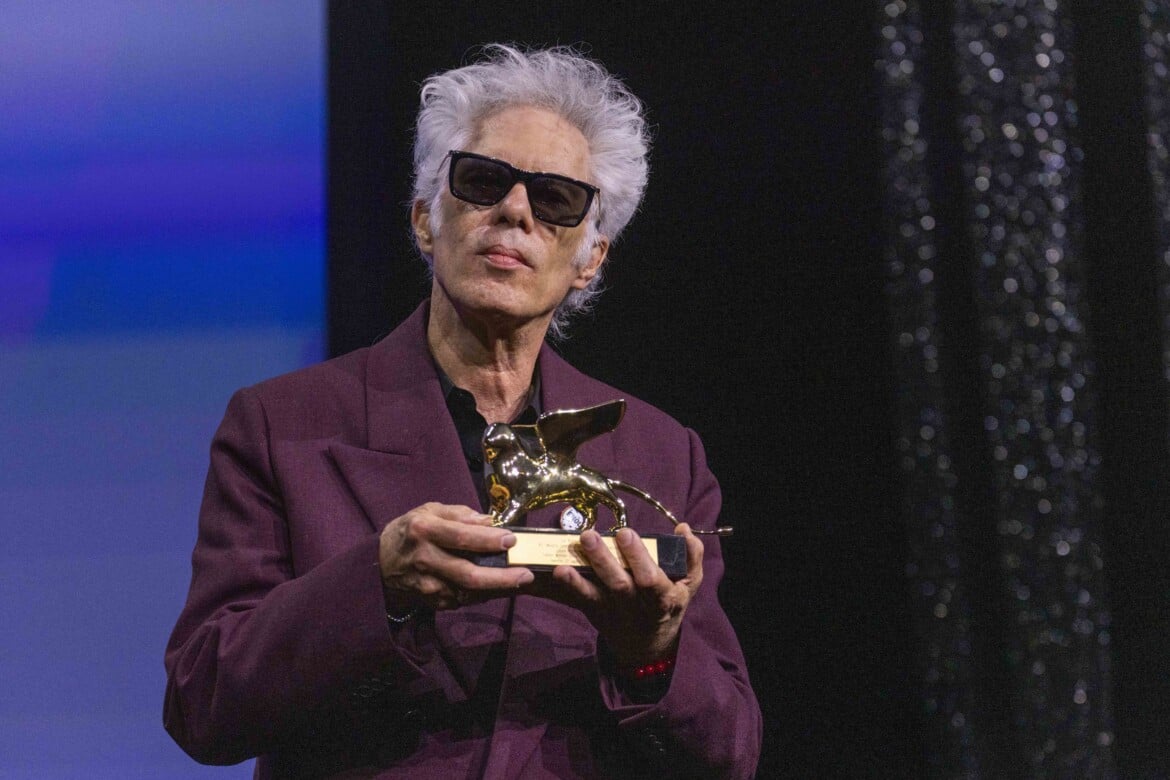Analysis
Venice Film Festival honors cinema in the present tense
Palestine was the protagonist of the evening. 'Hind’s voice is the voice of Gaza. Cinema gives us courage. She is gone, but her presence is still here.'

When Kaouther Ben Hania took the stage, she was greeted with a standing ovation, a clear sign that for many in the audience, she and her film The Voice of Hind Rajab were the true Golden Lion winners at this 82nd Venice Film Festival. This takes nothing away from the merits of Father Mother Sister Brother, Jim Jarmusch’s magnificent film, which was awarded the prize. He seemed almost surprised by the award, as someone who dislikes contests and competition, and accepted it with quotes from Kurosawa and Terence Hill while wearing an “Enough” pin in support of Palestine.
Palestine was the protagonist of the evening – an endless, soporifically paced television event with absurdly long pauses, hosted, like the opening, by Emanuela Fanelli. Support for the cause permeated this 82nd edition as a sort of secular confession of faith, present in the many gestures, speeches, and voices of artists, going beyond the one film that gives such powerful expression to the genocide of the Palestinians. And it sends a message to the entire global political class, and to those who use the media to proffer obscene lies, about what this genocide means for all of humanity, for our rights, and for our freedom of critical thought and dissent. It’s not about sending prayers – invoked by President Buttafuoco with a live link to Cardinal Pizzaballa in Jerusalem. It’s about choices, responsibility, and politics.
“I dedicate this award to the Red Crescent and to those saving lives today in Gaza. They are true heroes, trying to listen to the cries of people to whom no one is responding,” said Ben Hania. “Hind’s voice is the voice of Gaza. Cinema gives us courage. She is gone, but her presence is still here, it is in her voice, and it will resonate until there is justice. And even if it doesn’t bring her back, it continues to tell us the story of an entire people suffering a genocide inflicted by the Israeli regime, which acts with impunity. There is an emergency concerning her mother and her little brother who are still in Gaza and risking their lives, like so many others – mothers, fathers, children under a sky full of bombs. Enough is enough. Free Palestine,” the director added.
Free Palestine. Que viva Palestina. Nearly everyone repeated it on that stage, in the glittering Sala Grande, live on Rai television. “I want to express my admiration, also on behalf of the entire Italian film industry, for those who at this moment have put to sea to bring a sign of humanity to a land where human life is constantly debased,” said Toni Servillo, accepting the Coppa Volpi for Best Actor. So too did the group from En El camino by David Pablos, winner of an Orizzonti award. Anuparma Roy, director of Songs of the Forgotten Trees, who won Best Director in the same section, asked the audience not to applaud her for saying it. Benedetta Porcaroli, Best Actress for Il rapimento di Arabella, sent a message of solidarity to the Flotilla, as did Maryam Touzani, director of Calle Malaga and winner of the Audience Award.
Although the Biennale did not accept the requests made by Venice4Palestine, it had to allow freedom on stage – a contrast to the repression masked as etiquette at the Berlinale – thus giving voice to our times. Jury president Alexander Payne said in the post-awards press conference that the jury did not want a tie for the top prize, but that they had to take responsibility for choosing a different Golden Lion winner, including with regard to the “criticism” from those who see “emotional blackmail” in Ben Hania’s film. This is not the case, however, because those images question the viewer without manipulation and, today, are the way to do politics through cinema.
It is very true that political cinema does not necessarily mean focusing on a particular topic, as Jarmusch noted. In fact, his film is also political, as are Benny Safdie’s The Smashing Machine – which won the Silver Lion for Best Director and deconstructs the American imagination through empathy – and Ildiko Enyedi’s Silent Friend, whose young star, Luna Wedler, won the Mastroianni Award. But here, something else was at stake: a symbolic sign, a collective stand.
That was not the jury’s only mistake, though the other was not as glaring: namely, the Coppa Volpi for Xin Zylei, star of The Sun Rises on Us All, a mediocre melodrama in which she fails to strike any expressive chord. There were extraordinary performers in the running like Valeria Bruni Tedeschi, whose emotional physicality brings Eleonora Duse to life in Duse, Pietro Marcello’s unjustly ignored film.
The choice of Toni Servillo, however, was to be commended, not only for Sorrentino’s La Grazia but for everything this sublime actor – and director and playwright – brings with him, in cinema and, before that, in theater; his presence in our collective imagination is one capable of experimenting with different nuances each time, accepting the ever-new challenge of putting himself on the line.
The festival is over. One hopes that the common battle to stop the genocide will continue every day, in the daily life of each and every one of us. Enough is enough.
Originally published at https://ilmanifesto.it/venezia-82-il-cinema-al-tempo-presente on 2025-09-07
